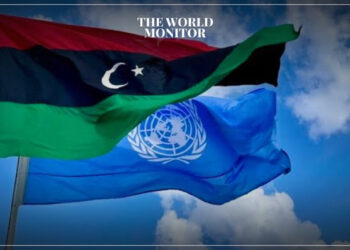Egyptian Foreign Minister Badr Abdel Ati emphasized today, Wednesday, the importance of concerted efforts to create a safe environment for ship passage in the Red Sea and to reassure international shipping companies. During his meeting with the commander of the European maritime operation in the Red Sea, “Aspides,” Vassilis Goubaris, Abdel Ati highlighted the “direct impact of security threats to navigation in the Red Sea on the Egyptian economy due to the substantial decrease in Suez Canal revenues, making Egypt one of the countries most affected by the current situation.” He stressed the “need to address the real causes of the unprecedented escalation, including the ongoing Israeli war in Gaza, the policy of assassinations, and the violation of the sovereignty of regional states.”
The commander of the European maritime operation expressed appreciation for Egypt’s support for the operation, emphasizing the importance of engaging with the affected regional countries, especially Egypt, to ensure navigation security in the Red Sea and foster an environment conducive to the safe passage of ships.
Suez Canal Authority’s Chairman, Osama Rabie, stated that “the Suez Canal is a cornerstone for the stability and sustainability of global supply chains, which have been noticeably disrupted recently due to the current tensions in the Red Sea region.” He mentioned during a reception for the commander of the U.S. Central Command that “the movement of navigation through the canal has been severely affected by the Red Sea crisis, prompting many ship owners and operators to choose alternative routes, negatively impacting the canal’s ship crossing rates.”
He further added: “This is reflected in the navigation statistics for the fiscal year 2023/2024, where 20,148 ships crossed with a total net tonnage of one billion tons, generating revenues of $7.2 billion, compared to 25,911 ships during the fiscal year 2022/2023 with a total net tonnage of 1.5 billion tons, generating revenues of $9.4 billion.”
The Chairman also discussed the impact of the current tensions in the Red Sea, which not only affect the Suez Canal but also the maritime transport market, trade movement, and global supply chains, proving that there is no real alternative to the Suez Canal. The use of alternative routes has led to longer sea voyages, increased operational costs, and adverse environmental impacts due to higher carbon emissions, as well as congestion in seaports and delays in the arrival of goods.
Egyptian President Abdel Fattah el-Sisi last month stated that the revenue decline of the Suez Canal by 40 to 50% was due to crises. He highlighted during the opening of the seventh Egypt International Energy Exhibition “EGYPS 2024” that “Egypt faced the repercussions of COVID-19 for two years, then the Ukrainian crisis, then what you see on our various borders with Libya and Sudan, and now with the Gaza Strip, and you see the shipping corridor that used to bring in approximately $10 billion annually to Egypt has declined by 40 to 50%,” he said.
He added, “All this is happening, and today the Egyptian state has obligations with oil companies, development partners, and financing institutions, and I mean to say that if there were commitments, Egypt was keen to fulfill them regarding the transition to clean energy, which included significant funds being injected.”






